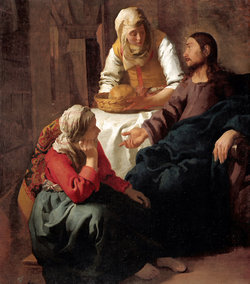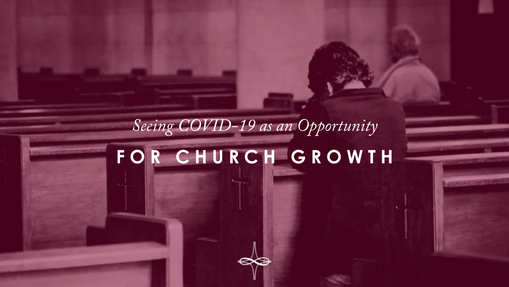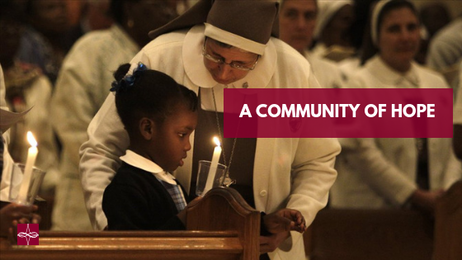|
As a young girl in elementary school, I attended a moderately small school—about sixty students in a grade level split into two classrooms. Each year, with the coming of a new grade, the class of students would get mixed up, and I’d usually have to make new friends. For some reason, I always gravitated toward meeting the students completely new to the school. At some point all of us have felt left out in one way or another, and I always wanted to make sure these new students didn’t feel ignored or out of place. This prompting to want others to feel included and like they belong has always stuck with me. I felt this most especially when I began to open my first house to a small women’s group gathering about once a week. At first, I was nervous to open my home to people I didn’t know or didn’t know well. But after my first few hosting opportunities, I found it to be something I enjoyed tremendously. I began to seek out additional chances for hosting themed activities, such as a Lenten soup and salad potluck or what has now turned into an annual cookie party tradition during Advent. And the best part: making new and lifelong friends. During the start of the Covid-19 pandemic, I moved to a new city. That meant a new home, new neighborhood, new church, new friends, etc. Years of isolation during the pandemic has made it difficult to meet people when you start over after a move. Last year, I decided to try something new—hosting a “Blessed Brunch” for local Catholic women at my new home. I hardly knew most of the women who attended the brunch, but I’ve walked away from that event with wonderful new friends and connections at local parishes. A month later, one of the women from the Blessed Brunch invited me to a small women’s group. This group has been a wonderful source of comfort and friendship to me over the last year. We each take turns hosting the monthly gathering, inviting others we know who may be interested in joining us. A woman from this group always asks if she can invite a friend in need of community whenever we host additional gatherings outside of the small group. I find this to be a very touching gesture and one that encourages me to think of additional people in need of community around me. I love this about hospitality: in the action of making our homes—and hearts—open to others through hospitality, we become more selfless by making room for and serving others. By being welcoming, we share what we have, whether that be food, time, or a willingness to listen and comfort. These small actions reflect God’s love for us. Jesus’ parable of the Good Samaritan is a classic example of how one man made himself vulnerable and available to the needs of another—an act of both generosity and hospitality. In contrast, when we serve out of a feeling of obligation, the joyfulness and warmth of giving in that hospitality is lacking. During Jesus’ public ministry, he and his disciples relied on the hospitality of others as they ministered to others. “Without cost you have received; without cost you are to give,” Jesus said (Mt 10:9-11). The early Christians relied heavily on the hospitality of other Christians who might have been strangers. As Acts 2:44-47 describes, “All who believed were together and had all things in common; they would sell their property and possessions and divide them among all according to each one’s need. Every day they devoted themselves to meeting together in the temple area and to breaking bread in their homes. They ate their meals with exultation and sincerity of heart, praising God and enjoying favor with all people. And every day the Lord added to their number those who were being saved.” As we listen to the invitations and promptings of the Holy Spirit this Lent, let us discern how we can invite Christ and others in our community into our hearts. Perhaps he is calling us to host a Lenten Bible Study small group or a Friday night soup, salad, and Stations of the Cross potluck. Maybe there is an opportunity for you to invite a catechumen or someone new to you or your church to attend an event together during the Lenten season. In the serving of others, we serve Christ himself. How might you be called to extend hospitality to others this Lent?
0 Comments
When you hear the word ‘hospitality’, what comes to mind? Like most people, I bet you think of hotels, or in some cases, you may think of that one aunt you have who always makes sure everyone’s glass is full and everyone has a seat. If you’re in ministry, ‘hospitality’ may now be synonymous with having coffee and light pastries at early morning meetings. But in a Benedictine sense, hospitality is very different. July 11th marks the Church’s feast of St. Benedict. In the early sixth century, St. Benedict wrote a Rule that he wanted his monks to follow. In 73 short chapters, St. Benedict tried to lay out an entire monastic way of life, so he certainly had a lot of ground to cover. He wrote about everything; from how an abbot should be chosen to how much monks were to eat and drink and where they were to sleep. He also devoted an entire chapter to how guests were to be received and treated. This whole chapter, which is quite brief, can be summed up in the first phrase the Founder writes, “Let all guests who arrive be treated as Christ…” (Ch. 53). Benedict goes into specifics on how guests are to be welcomed and fed, but it all goes back to Christ Himself saying “I came as a guest, and you received Me” (Mt. 25:35). St. Benedict understands, and wants his monks to understand, that Christ can be found in everyone. The first phrase of the last paragraph is a perfect summary of the Gospel message as well, “In the reception of the poor and of pilgrims, the greatest care and solicitude should be shown, because it is in them that Christ is received…” (Ch. 53). How do we treat the stranger on the street, the man selling us a magazine, the immigrant, or the receptionist? Remember also, this does not apply to just the stranger. How do we treat those that we see every day: the coworker, roommate, friend, or classmate? Are these people just a means to an end, are they here for our convenience or happiness, or are they Christ to us? Are we treating them as Christ incarnate or just as another person we have to deal with? Most likely we do not fall into either extreme, but every time we fall short of treating a person as Christ, we fall short of treating God as God. To be hospitable, we do not need to follow the exact instructions of St. Benedict. Our hospitality, like his, should be rooted in charity, in love. It can be quite simple: a smile, a since greeting, or the most common one at my alma mater, the holding of a door for a distant stranger. Hospitality is the easiest way to build up the Kingdom of God here and now. When we welcome the guest, greet the stranger, or feed the hungry, we are doing these things for both God and neighbor. By being hospitable, we are fulfilling the greatest commandment. Let us pray for the intercession of St. Benedict today, asking him to pray for us, that we may be hospitable, welcoming, and loving in every interaction we have. To learn more about St. Benedict, please visit our Catholic Feast Days site. **This post was originally published on July 10, 2014** AuthorBr. Titus Phelan, O.S.B. of St. Anselm Abbey. In 2020, when the COVID-19 pandemic was beginning in earnest, there were many questions about what would happen in the Catholic Church if people’s lives were upended in such profound ways. In many respects, we may not truly understand the ramifications of a worldwide change in perspective until we can look back at it. That being said, with “the return to normal,” the opening up of parishes, and the re-starting of activities have come questions about what we have learned from this pandemic experience. I think many of us re-learned that community and connection are important. The question that seems to be challenging folks is: Now that we can start to plan to meet in person, what should our parish activities look like? For the past two years, I have had the pleasure of doing Master’s work in Church Management at Villanova University. Most of my studies occurred during this pandemic and offered a unique perspective of what effective parishes and communities have done to respond to a sudden shift in the assumptions of what the Church in the United States looks and acts like. Most of the parishes that were able to weather the storm well were able to do so because they were intentional about what community is and should be. They did not assume that a parish had to be only the functions that happen within a city block or a singular location, but rather can have an online presence and remotely meet people where they are. I think of my friends and colleagues with young families or who have long commutes and the complications that our parishes can impose on people who would like to be involved, but cannot be due to the lives that they lead. Are we as church leaders imposing certain restrictions for the members of the parish to be able to build a community? As active Catholics, our job is to share the joy of the Gospel that we hopefully have experienced with others. The pandemic has proven that there is a desire for community and for Christ in people’s lives despite barriers. However, we as Catholics also need to acknowledge that if we “are now just going back to normal,” we are also going back to the normal of an older and smaller church. We need to see the pandemic not as a temporary event, but rather the opportunity that God has given us to think creatively and reflectively over the past year about what it means to be Catholic in the United States. Similarly, what is our hope for the future of the Catholic Church in the United States? If we do not think about these things, we risk becoming a closed community for only those who are already active members. There were many challenges during the pandemic, but there were opportunities to grow and learn for our Church as well. My hope is that we take the lessons that we have learned, both positive and negative, about what it means to be in a community and to be community leaders and apply those findings in healthy, creative ways going forward. For more resources on navigating COVID-19 as a community, please click here. The recent news of scandal within the American Church has understandably been the cause of immense frustration, anger, and disappointment in the public and, most especially, among the faithful. I have also seen many who have become disillusioned by the Catholic Church and decided to separate from the rest of the faith community. The danger in this response is that it risks throwing out the baby with the bathwater, as our faith community is one of the greatest gifts given to us by the Holy Spirit. Through my travels this summer, I had the opportunity to experience two very different cultures very much tied to our Catholic faith. My experiences in these cultures reminded me of the great blessing of our faith community. In early July, I set off with a group of teenagers and adults from my parish on a mission trip to visit our sister parish in Dessalines, Haiti. When we landed and traversed the countryside, I came face to face with poverty unlike any I have ever experienced. My concern over a lack of modern amenities quickly dissipated, however, as I was overwhelmed by the warm hospitality of our Haitian hosts. Most especially, the Haitian children and teens we worked with throughout the weeklong summer camp showed us true joy and hope. The pastor told us that our presence meant so much to the community, solidifying our relationship as brothers and sisters in Christ more than any monetary donation could achieve. In September, I travelled to visit extended family in Ireland. Despite it being only the second time I had met most of them, our conversations continued well into the evening and it felt as though we were picking up right where we left off. Evident among our conversations was a shared concern for the scandals facing the American Church, but there was also a resolute hope that keeping our eyes fixed on Christ would see us through. As we talked about the family history and previous generations, I was reminded of how grateful I am to have had the faith passed down to me and how much I owe to my ancestors. In these distinct experiences of encounter, the hospitality I was shown and the underlying hope I received from my conversations with my hosts reminded me of the great blessing of our faith community, no matter how far flung it might be. This an especially difficult time to be Catholic, but I firmly believe that with God’s grace our faith community, broken and imperfect as it may be, will also be among our greatest sources of hope. In times of adversity, let us cling to our communities of faith and to Christ Himself. Rather than abandon our parishes and local church communities, let us work to ensure that they are rooted in the love of Christ in order to build a holy Church, a community of hope. Paul boldly reminds Christians, “our citizenship is in heaven” (Phil 3:20). In a sense, our single most political act on this earth is not who we vote for in the next election, but our Baptism. In baptism, we discover our truest identity as adopted sons and daughters of God, and together become “one in Christ Jesus” (Galatians 3:27-28). But as citizens of heaven, we also live as “aliens and sojourners” (1 Peter 2:11). This Jubilee Year of Mercy issues an invitation and challenge for Catholics to transform what society regards as ‘political problems with political solutions’ into encounters with God’s grace and mercy. Borrowing a phrase from Biblical scholar Walter Brueggemann, Christians are not simply called to meet issues with more political machination, but greater “prophetic imagination.” When Christians do not actively imagine and enact truthful and merciful alternatives to social evils, pragmatism and deceit can lay deep roots in our society. In the Book of Leviticus, an important aspect of the ancient Jubilee Year involves extending mercy to a group of people the Bible calls resident aliens, outsiders living among the Israelites who belonged to no tribe. They occupied a vulnerable position in society and were not always welcomed, but God’s law was meant to protect them as legal equals (cf. Ex 12:49; Lev 24:22). Today our Church takes seriously the responsibility to stand up for the human dignity of migrants and refugees. While speaking on the topic of pastoral care for migrants and itinerant peoples, Pope Francis expressed his hope that, “our Christian communities really be places of hospitality, listening, and communion.” Hospitality In Leviticus 19, God instructs Moses and the Israelites about harvesting the land, not to “reap the field to its very edge,” for, “… these things you shall leave for the poor and the alien” (Lev 19:9,10, cf. Deut 24:20-21). A problem many of us succumb to in a consumerist culture (myself included) is living without margin. We max out our schedules and credit cards so that we simply cannot make room in our day or budget to give freely, or receive someone in need when opportunity arises. As Pope Francis recently put it, “If the Jubilee doesn’t arrive to the pockets, it’s not a true Jubilee.” The scripture and tradition of the Church prescribe counter-cultural hospitality toward the stranger. Exemplified in monastic tradition, the Rule of Benedict in Chapter 53 puts forth Jesus’ words, “Let all guests who arrive be received like Christ” (Matthew 25:35). Moreover, in a culture where nearly every human experience is branded and marketed, we should not confuse hospitality with customer service. Listening “Listen… and administer true justice to both parties even if one of them is a resident alien… Give ear to the lowly and to the great alike” (Deut 1:16,17). There is no justice or mercy without listening to the oppressed and marginalized. The theologian Dietrich Bonhoeffer once wrote: “The first service that one owes to others in the fellowship consists in listening to them. . . It is God’s love for us that He not only gave us His Word but also lends us His ear. . . Many people are looking for an ear that will listen. They do not find it among Christians, because these Christians are talking where they should be listening. But he who can no longer listen to his brother will soon be no longer listening to God either” (Life Together. New York: Harper & Row). When we listen, we may even discover someone who is no longer a stranger but a friend. Communion God had to remind the Israelites, “You shall love the alien as yourself; for you too were once aliens in the land of Egypt,” (Lev 19:34). The New Testament reiterates: “Once you were ‘no people’ but now you are ‘God’s people’; you ‘had not received mercy,’ but now you have received mercy” (1 Peter 2:10). Pope Francis powerfully stated that communion cannot exist where Christians seek to build walls instead of bridges. Communion happens through solidarity and accompaniment, not the gospel of, “God helps those who help themselves.” As Catholics, our communion is best expressed through the Holy Eucharist, where we “participate with the whole community in the Lord’s own sacrifice” (CCC 1322). Recent celebrations of the Mass across the USA-Mexico border witness the power of the Eucharist to unite Christians separated along national/political divides. In a climate of fear and self-preservation, the Eucharist consumes us, lest we consume each other. Political debates will rage this year. As Christians, let us consider how the Jubilee of Mercy cannot be separated from our particular concern for migrants and refugees in the form of the prophetic witness of Christian hospitality, listening, and communion. To learn more about the Jubilee of Mercy, visit our free resource page by clicking here.  We’ve heard the story of Martha and Mary welcoming Jesus into their home. Martha is busy tending to hospitality needs while Mary listens to Jesus. Martha complains to Jesus requesting Mary’s help. Instead, Jesus answers, “Martha, Martha, you are worried and distracted by many things; there is need of only one thing. Mary has chosen the better part, which will not be taken away from her.” (Lk 10:38-42) As a young girl, I found the story of Martha and Mary difficult to understand. Growing up in a family valuing hard work, I often associated myself with Martha’s work ethic. I couldn’t figure out why Jesus would value inaction rather than work. Proverbs 12:24 says, “The hand of the diligent will rule, while the lazy will be put to forced labor.” But then I realized I had the point of the story wrong. Jesus’ response has nothing to do with working hard. It has everything to do with listening to his message. We can then see in ourselves what Jesus points out in Martha – we can be easily distracted and worried by tasks we need to accomplish in this world. Through Martha’s story, Jesus reminds us that there is one thing that is important: following Jesus’ message and his individual calling for each of us. In John 11:17-27, Martha meets Jesus as soon as she learns he is coming after hearing Lazarus has died. Immediately we see a change in this narrative of Martha. She purposefully goes to Jesus and when he asks her about his belief in him she responds, “Yes, Lord, I believe that you are the Messiah, the Son of God, the one coming into the world.” Next, Martha has the opportunity to serve Jesus six days after the Passover (John 12:1-8). She does so humbly and quietly. We come to understand Martha’s role is a different calling than Mary’s, much like in our own lives when those around us may not be called to the same occupations, tasks, talents, and other circumstances. Martha has chosen to serve with love instead of with bitterness and arrogance. Martha’s story gives us hope. Even though we can fall into the trap of trying to complete tasks on our own without God, there is opportunity for us to try again. When Jesus speaks to Martha, he is not unkind. His response is a loving one. As sinners we can only strive to learn and grow from our mistakes to make the next opportunity filled with Christ. Known as the patron saint of cooks, homemakers, and servants, St. Martha reminds us to thank those in our lives who serve us. This can be our parents or those who cook for us, those who work in public service, or even the waiter or waitress at our next restaurant meal. As a way to celebrate St. Martha’s feast day with our families this July 29th, we can pray to serve Jesus better: Saint Martha, pray for us that we might serve Jesus better. Help us to overcome our distractions and worries to listen to his words and be present to him this day. Amen. Dana Edwards is a recent graduate of the University of Florida. She currently resides in Tallahassee, Florida where she volunteers as a lector and with communication outreach at her local parish, Good Shepherd Catholic Church. As a fun activity to celebrate St. Martha’s feast day, I found this no-bake pumpkin pie recipe from Quebec named after St. Martha in my family cookbook, Cooking with the Saints: An Illustrated Treasury of Authentic Recipes Old and Modern
Tarte a la Citrouille Sainte-Marthe Serves 6 Ingredients: 3 eggs ¾ c. (200g) sugar 1 ½ c. (375g) pumpkin puree ½ c. (125ml) milk ½ tsp. salt ½ tsp. ginger ½ tsp. nutmeg ½ tsp. cinnamon 4 Tbsp. cold water 1 Tbsp. gelatin (1 ½ envelopes) 1 pre-baked piecrust If you have used sweetened pumpkin puree, reduce the amount of sugar in the recipe by half. Separate the eggs. Beat the egg whites until fluffy, add half the sugar and continue beating until smooth. Set aside. In another bowl beat the egg yolks with the other half of the sugar until the mixture thickens and becomes pale. Add the pumpkin puree, milk, salt, ginger, nutmeg and cinnamon. Continue beating until mixture is smooth. Transfer mixture to the top of a double boiler and cook it for 7-8 minutes until it thickens. Sprinkle the gelatin on top of the cold water and let it soak for 5 minutes. Add gelatin to the contents of the double boiler and stir until it is dissolved. Let the pumpkin mixture cool to room temperature, then carefully fold in the beaten egg whites with a spatula. Pour into the pre-baked piecrust and refrigerate for 4 hours or until firm and set.  When you hear the word ‘hospitality’, what comes to mind? Like most people, I bet you think of hotels, or in some cases, you may think of that one aunt you have who always makes sure everyone’s glass is full and everyone has a seat. If you’re in ministry, ‘hospitality’ may now be synonymous with having coffee and light pastries at early morning meetings. But in a Benedictine sense, hospitality is very different. July 11th marks the Church’s feast of St. Benedict. In the early sixth century, St. Benedict wrote a Rule that he wanted his monks to follow. In 73 short chapters, St. Benedict tried to lay out an entire monastic way of life, so he certainly had a lot of ground to cover. He wrote about everything; from how an abbot should be chosen to how much monks were to eat and drink and where they were to sleep. He also devoted an entire chapter to how guests were to be received and treated. This whole chapter, which is quite brief, can be summed up in the first phrase the Founder writes, “Let all guests who arrive be treated as Christ…” (Ch. 53). Benedict goes into specifics on how guests are to be welcomed and fed, but it all goes back to Christ Himself saying “I came as a guest, and you received Me” (Mt. 25:35). St. Benedict understands, and wants his monks to understand, that Christ can be found in everyone. The first phrase of the last paragraph is a perfect summary of the Gospel message as well, “In the reception of the poor and of pilgrims, the greatest care and solicitude should be shown, because it is in them that Christ is received…” (Ch. 53). How do we treat the stranger on the street, the man selling us a magazine, the immigrant, or the receptionist? Remember also, this does not apply to just the stranger. How do we treat those that we see every day: the coworker, roommate, friend, or classmate? Are these people just a means to an end, are they here for our convenience or happiness, or are they Christ to us? Are we treating them as Christ incarnate or just as another person we have to deal with? Most likely we do not fall into either extreme, but every time we fall short of treating a person as Christ, we fall short of treating God as God. To be hospitable, we do not need to follow the exact instructions of St. Benedict. Our hospitality, like his, should be rooted in charity, in love. It can be quite simple: a smile, a since greeting, or the most common one at my alma mater, the holding of a door for a distant stranger. Hospitality is the easiest way to build up the Kingdom of God here and now. When we welcome the guest, greet the stranger, or feed the hungry, we are doing these things for both God and neighbor. By being hospitable, we are fulfilling the greatest commandment. Let us pray for the intercession of St. Benedict today, asking him to pray for us, that we may be hospitable, welcoming, and loving in every interaction we have. Michael Phelan is in his second and final year in the Echo Program at the University of Notre Dame. He is a graduate of Saint Anselm College, a Benedictine school, in Manchester, N.H.
|
Details
Archives
July 2024
Categories
All
|
About |
Media |
© COPYRIGHT 2024 | ALL RIGHTS RESERVED











 RSS Feed
RSS Feed